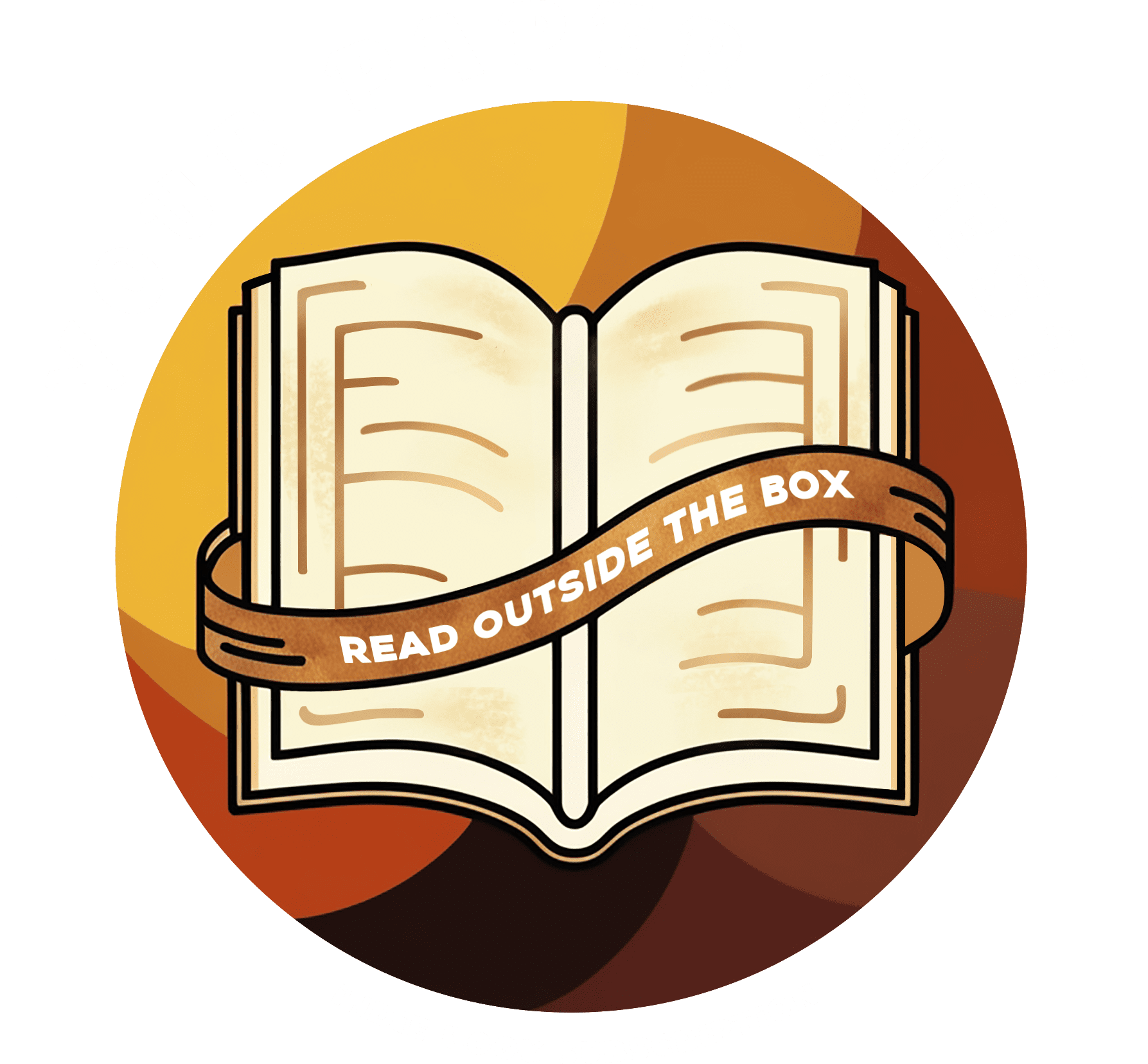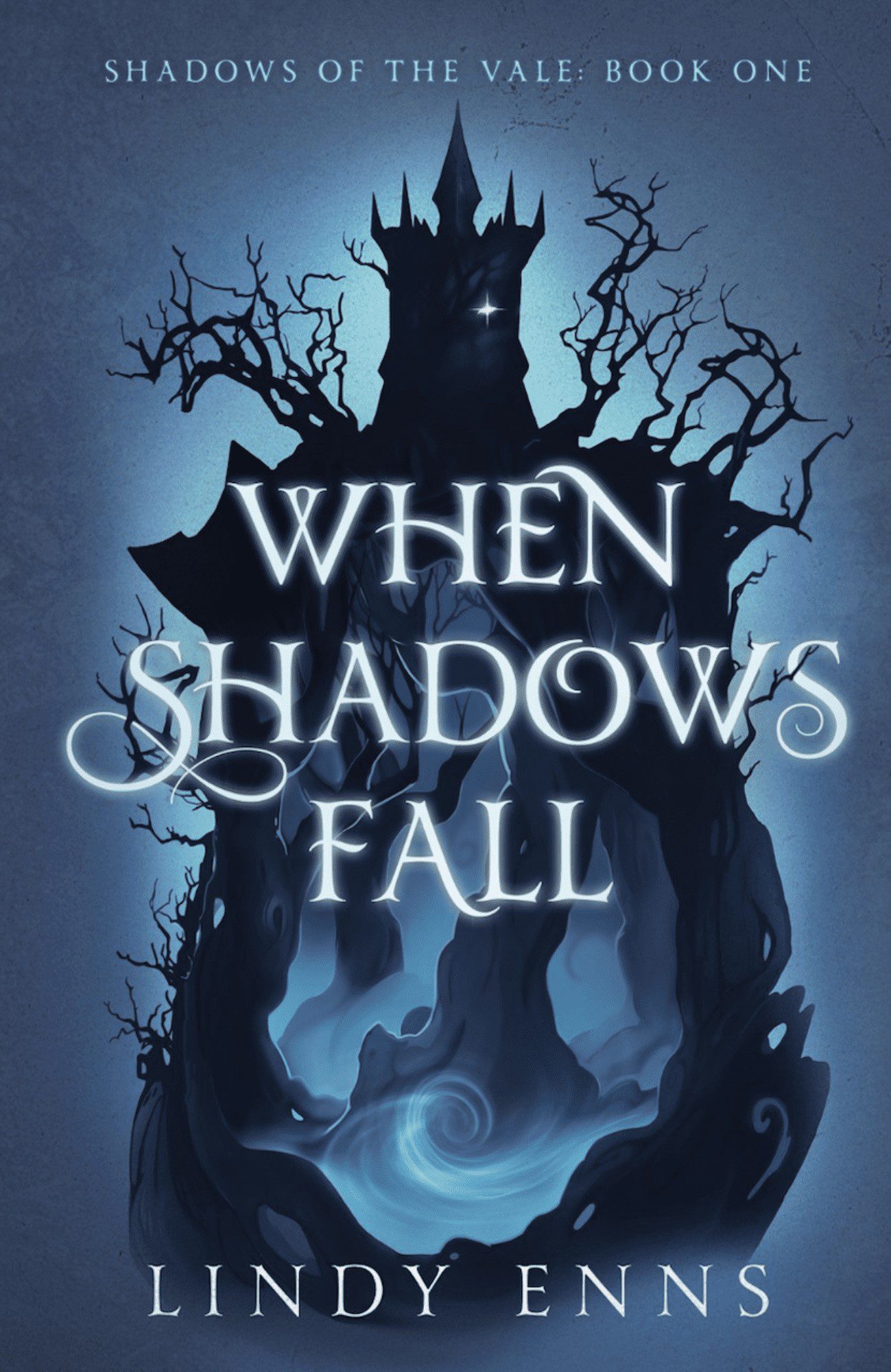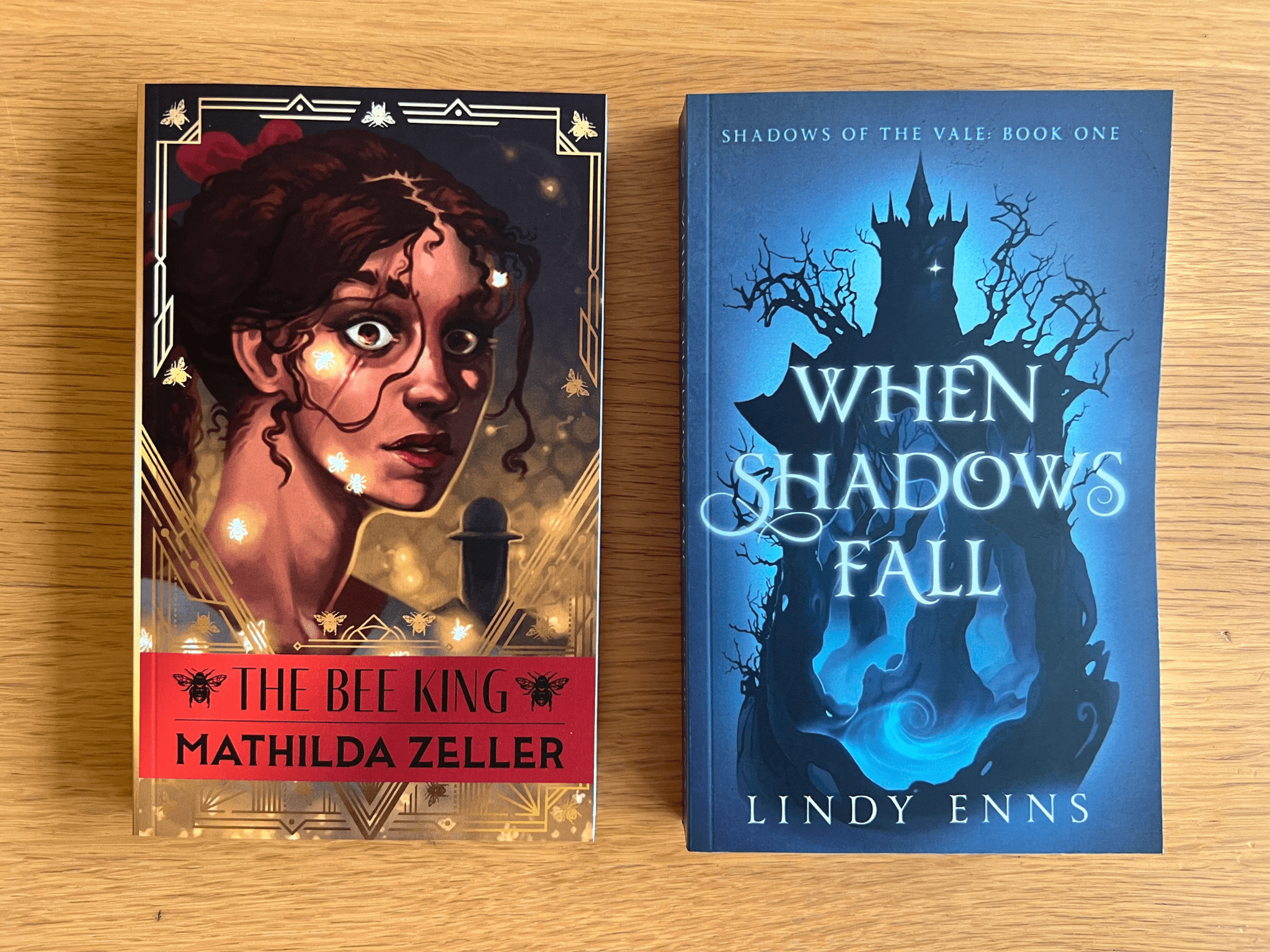Lindy Enns
WHEN SHADOWS FALL
I’ve pretty much been a writer my whole life. I was telling stories before I could even speak properly (apparently, my dad called upon my sister to try and interpret my babble, which was as endless as it was incoherent), and my first written stories came well before I could write (thanks to my mom who dutifully wrote down the words I wanted in my little hand drawn books).
Soon enough, I was writing my own picture books about unicorns living in protected valleys until the monsters dug tunnels through the mountains to attack them (an idea stolen directly from my sister), and then chapter books about mice who lived in combines, or whatever other idea took my fancy. From there, I began my very first epic fantasy (which was definitely NOT a Lord of the Rings rip-off) complete with plans for its own made-up languages, which, having no idea how language actually worked, I attempted to create by going through the dictionary page by page and coming up with a replacement for each and every word. (My dwarvish never made it past the A section.) Then I got my first laptop and started on what I later realized was my first and only fanfiction, self-insert story that bent over backwards trying to explain why a girl from earth could find herself in the midst of the well-known Star Wars saga.
When I reached high school, I began to take writing more seriously. My top career choices were writing and directing, and as I lacked the confidence to make it as a director, I opted for writing. I got permission to work on a novel for a special credit in grade 12, and began work on what I expected to be my debut novel. I restarted the book at least a dozen times, changing characters, plot points, tone, and scope with nearly every iteration. I continued working on it for a few years out of high school, the story slowly growing into an epic fantasy. I had endless pages of world building material; maps, alternate calendars, histories, descriptions of other countries and races, and even a healthy start on the vocabulary and basic grammar for a true conlang.
Well, my world building got deeper and deeper, but my drafts grew ever more difficult as I tried to adapt old ideas and update my inexperienced writing style while incorporating the ever-growing scale of the world and story, and eventually, I acknowledged that I simply didn’t have the skill yet to write epic fantasy. I switched gears to a middle grade fantasy (which I completed and queried for a brief time) before finally taking on When Shadows Fall, my actual debut novel.
It’s hard to say what moment in all of this I truly decided to become an author. Or rather, I should say I decided many times. I decided in high school, when I thought I knew everything I needed to know about the life I wanted to lead. I decided it again after a year of post-secondary, when I started prioritizing writing as my number one goal. And I’ve decided it many times since, every time I’ve questioned what I’m doing with my life, and is this really sensible, and am I crazy to dedicate so much time, energy, and money into something at which I may never succeed?
I think the pivotal moment was when I made the choice between writing and teaching. I had been an educational assistant for many years, which I loved, but I often found myself imagining what it would be like to run my own classroom. I knew I’d enjoy it and that I’d be good at it, and that it would be a fulfilling calling. I also knew that the moment I became a teacher, I would have to hang up the dream of becoming an author. The added time and energy commitment of teaching (not to mention the stress!) would seriously hinder my writing output. Oh, I would still write, but for my own sanity, I would have to treat it like a hobby rather than a life goal.
I did some soul-searching, and came to one conclusion: if I continued to write books that I was genuinely pleased with, then it didn’t matter if I never got published or never made a living off of my work. The act of writing in itself had enough value to justify the time, effort, and hard-work that went into it. And, if I was going to write anyway, then why not go all in and reach for the stars? I chose writing over teaching, and aside from a few inevitable moments of doubt and despair, I don’t regret it. This path has not been easy, and it comes with a lot of sacrifice, but, as slow as progress has been, I know this is only the beginning, and I look forward to seeing where this wild dream of mine takes me!
That is a tricky question! I love coming up with ideas and writing first drafts, but I think my very favourite moments are when I’m working on a book (be it brainstorming, writing, revising, or editing) and things just click into place. The inspiration hits, the stars align, the idea comes to life, and I know I have something special on my hands. These moments are extremely exhilarating, and serve as fuel to propel me through the many stretches of frustration and difficulty that are an inevitable part of the process!
I haven’t put a lot of thought into a writing bucket list, but off the top of my head (and with no particular regard for feasibility) I’d say:
1. To make a living off of my writing/write full-time. This is literally the dream.
2. Write books. Lots and lots of books. I have so many ideas in my head, and new ones show up all the time. I feel like I’m in a race against the clock to try and write as many of them as I can during my lifetime!
3. See my book in the wild, in the hands of a stranger.
4. Receive fan mail (actual mail, not just a message online!).
5. To have a fanbase for my work, especially in regards to fan-made content. I think there’s something fascinating about the way a story takes on a life of its own when it grows outside of its creator’s hands. I love seeing fan-made art, videos, songs, memes and so on for the stories I enjoy, and seeing that for a story I wrote would be amazing!
6. Similarly, I’ve always loved watching video essays that do deep dives on stories, dissecting why they work or theorizing what they mean or revealing the deeper truths embedded within them, so writing a story that is known enough and impactful enough to inspire deep discussion through video essays (and things of that nature) has always been a secret dream of mine!
7. Possibly teach writing, or to have a YouTube channel where I discuss various aspects of writing.
8. Win a prestigious award for one of my books.
9. Get a cover quote from Brandon Sanderson.
I think there are two pieces of advice I would give to any new writer. The first is, slow down. With self-publishing as such a readily available option, I think many writers are eager to jump straight into the end game. I’ve had a number of new writers reach out to ask me questions about publishing before they’re even done writing a book. Finishing a novel is an immense undertaking, and getting good at writing is far more important (in my opinion) than learning how to publish, at least at first. Write. Write more. Rewrite. Revise. Edit. Write something new. Don’t try to rush to finish a project, but take your time and enjoy the process. Find out if writing is a hobby for you, or a passion.
If you discover it is a passion and you’re serious about pursuing it, my second piece of advice is to get as much reader feedback as possible. I do NOT mean family, friends, or co-workers. There is nothing wrong with getting feedback from people you know, but getting feedback from strangers is essential. Go online and find places where you can offer up your novel for beta-reading. Better yet, do some critique swaps with fellow authors—you will learn as much about writing from critiquing their work as you will from getting your own work critiqued. And when the feedback comes in, brace yourself. It’s not easy for any of us to expose our work to honest criticism; it’s scary, and yeah, sometimes it hurts. But this is a classic case of what doesn’t kill you makes you stronger. I guarantee, the process is worth it! You will make so many improvements to your work and to yourself as a writer that would otherwise be impossible.
And bonus tip, find yourself some writing friends! Having fellow writers in your life to celebrate with you, to cry with you, to encourage you, and to motivate you is priceless. Find the places where the writing community gathers and engage with the authors you find there.



